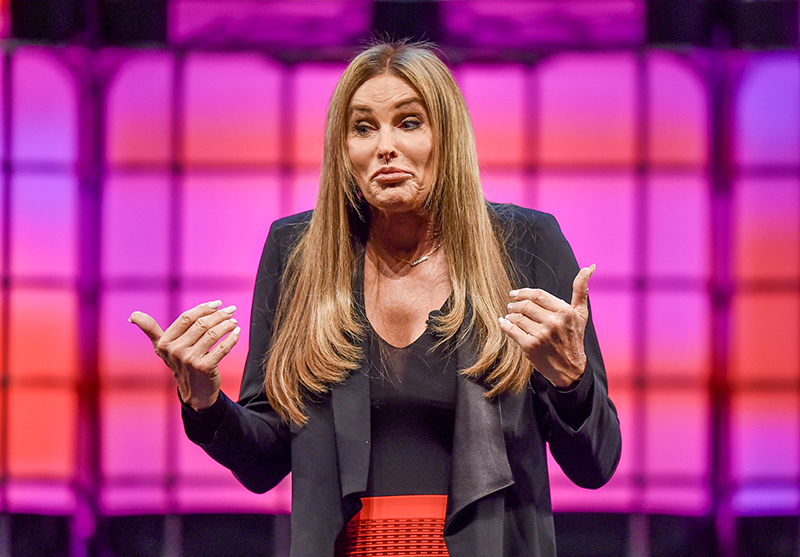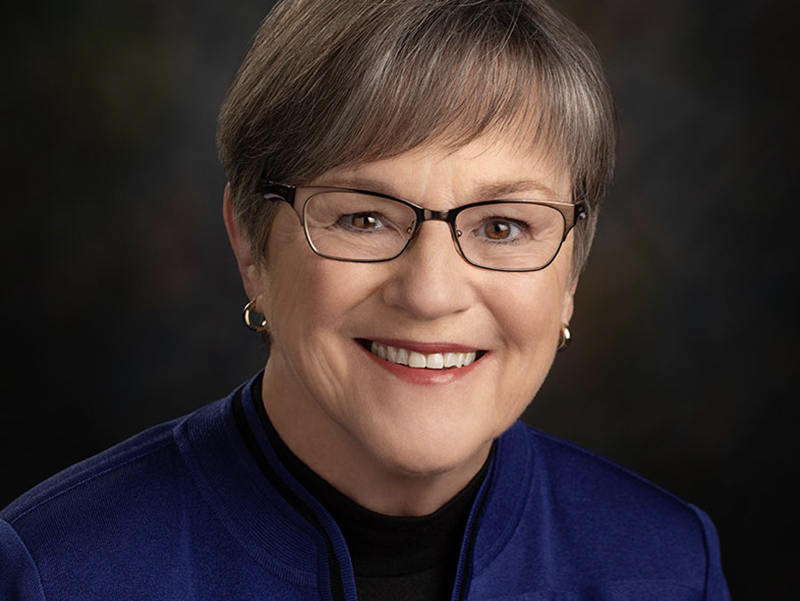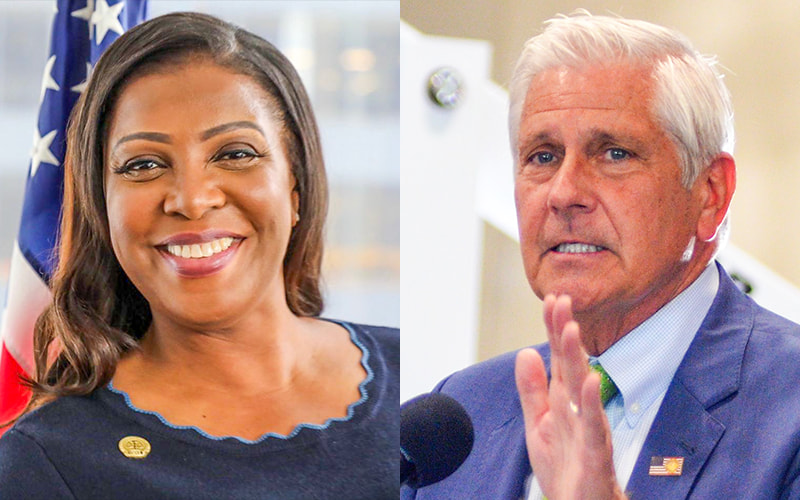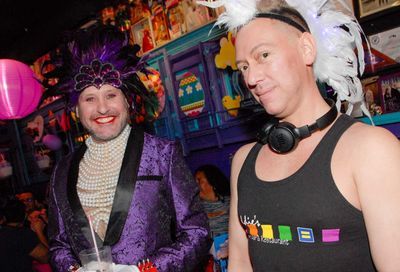Kentucky county clerk defies court order to issue marriage licenses
Judge previously ruled religious beliefs do not exempt government officials from performing their official duties

A Kentucky clerk’s office on Thursday turned away a gay couple seeking a marriage license, openly defying a court order that said she had to begin issuing marriage licenses to qualified couples.
According to the Associated Press, the Rowan County Clerk’s office refused to grant a license to David Moore and David Ermold. The couple sought to get married just hours after U.S. District Judge for the Eastern District of Kentucky David Bunning ruled that personal religious beliefs do not exempt government officials from performing the duties of public office.
According to Deputy Clerk Nathan Davis, the office was advised by its attorneys with the Liberty Counsel, a right-wing law firm that seeks to defend what it terms “Christian religious liberty,” to continue refusing to issue licenses as they appeal the ruling to the 6th U.S. Circuit Court of Appeals.
Amber Duke, a spokeswoman for the ACLU of Kentucky, said the organization’s lawyers would issue a statement after filing the appropriate motions.
On Wednesday, Bunning had granted a preliminary injunction to four Rowan County couples — two opposite-sex partners and two same-sex partners — who were denied the opportunity to obtain marriage licenses in their home county. He found that Rowan County Clerk Kim Davis’ “religious convictions cannot excuse her from performing the duties that she took an oath to perform as Rowan County Clerk.”
Davis is one of three county clerks in the Commonwealth of Kentucky who has refused to issue marriage licenses to same-sex couples. Following the Supreme Court’s decision legalizing marriage equality nationwide earlier this summer, Gov. Steve Beshear issued a directive ordering county clerks to comply with the Supreme Court ruling. Davis, an Apostolic Christian, vehemently objects to same-sex marriage, and declined to issue marriage licenses to anyone, regardless of their sexual orientation, lest she be accused of discriminating against same-sex couples.
Four deputy clerks in the Rowan County Clerk’s office hold beliefs similar to Davis’, and a fifth is undecided. But Davis refused to let even that deputy clerk issue licenses, noting that her name would appear on the license as the official county clerk even if she was not involved directly in the process. She claimed that she should be protected, under the First Amendment, from being forced to issue or condone the issuance of licenses to marriages that are contradictory to her sincerely held religious beliefs. The ACLU of Kentucky subsequently sued Davis on behalf of the four couples who were denied licenses.
In his opinion, Judge Bunning, one by one, eviscerated Davis’ various arguments against issuing licenses. First, Davis had argued that Rowan County Judge Executive Walter Blevins could rule her “absent” for the purposes of issuing marriage licenses. Under Kentucky law, a judge or county executive may issue licenses only when a clerk is absent. Bunning noted that if Blevins were to begin issuing licenses while Davis continued to perform her other duties as clerk, “he would likely be exceeding the scope of his office.”
Bunning also rejected Davis’ argument that the plaintiffs will, someday in the future, have other ways of obtaining a license, such as through an online system managed by the state, which would take the duty of issuing marriage licenses out of county clerks’ hands. “While these options may be available someday, they are not feasible alternatives at present,” Bunning writes. He also rejected the claim that Beshear’s directive to county clerks regarding their official duties violates her First Amendment rights to free exercise of religion or freedom of speech.
“The State certainly has an obligation to ‘observe the basic free exercise rights of its employees,’ but this is not the extent of its concerns,” Bunning writes, citing legal precedent. “In fact, the State has somepriorities that run contrary to Davis’ proffered state interest. Chief among these is its interest in preventing Establishment Clause violations. Davis has arguably committed such a violation by openly adopting a policy that promotes her own religious convictions at the expenses of others.”
Lastly, Davis had argued that any of the four couples currently denied marriage licenses could simply drive to another county to obtain the marriage licenses they seek.
“Davis is correct in stating that Plaintiffs can obtain marriage licenses from one of the surrounding counties; thus, they are not totally precluded from marrying in Kentucky,” writes Bunning. “However, this argument ignores the fact that Plaintiffs have strong ties to Rowan County…. And for other Rowan County residents, it may be more than a preference. The surrounding counties are only thirty minutes to an hour away, but there are individuals in this rural region of the state who simply do not have the physical, financial or practical means to travel.
“This argument also presupposes that Rowan County will be the only Kentucky county not issuing marriage licenses,” Bunning continues. “While Davis may be the only clerk currently turning away eligible couples, 57 of the state’s 120 elected county clerks have asked Governor Beshear to call a special session of the state legislature to address religious concerns related to same-sex marriage licenses. If this Court were to hold that Davis’ policy did not significantly interfere with the right to marry, what would stop the other 56 clerks from following Davis’ approach? What might be viewed as an inconvenience for residents of one or two counties quickly becomes a substantial interference when applicable to approximately half of the state.”
On Wednesday, the ACLU of Kentucky and lawyers representing the plaintiffs had expressed satisfaction with Judge Bunning’s decision.
“The ruling represents a total victory for our clients, and a reaffirmation of the institutions we have in place to protect American democracy,” Dan Canon, a lawyer who cooperated with the ACLU in bringing the suit and representing the plaintiffs, had said in a statement issued Wednesday evening. “Elected officials cannot be permitted to ignore the rule of law by governing according to their own private beliefs.”
Two other Kentucky counties — Casey and Whitley — currently also have clerks who are refusing to issue marriage licenses. While the ACLU has not yet found a plaintiff in those counties with standing to sue, if the 6th Circuit uphold’s Bunning’s ruling, any future cases in either of those counties could be impacted by the decision and compelled to begin issuing marriage licenses to same-sex couples.
Support Metro Weekly’s Journalism
These are challenging times for news organizations. And yet it’s crucial we stay active and provide vital resources and information to both our local readers and the world. So won’t you please take a moment and consider supporting Metro Weekly with a membership? For as little as $5 a month, you can help ensure Metro Weekly magazine and MetroWeekly.com remain free, viable resources as we provide the best, most diverse, culturally-resonant LGBTQ coverage in both the D.C. region and around the world. Memberships come with exclusive perks and discounts, your own personal digital delivery of each week’s magazine (and an archive), access to our Member's Lounge when it launches this fall, and exclusive members-only items like Metro Weekly Membership Mugs and Tote Bags! Check out all our membership levels here and please join us today!
























